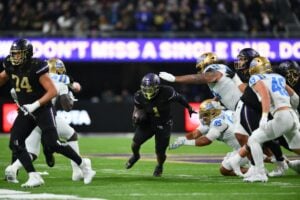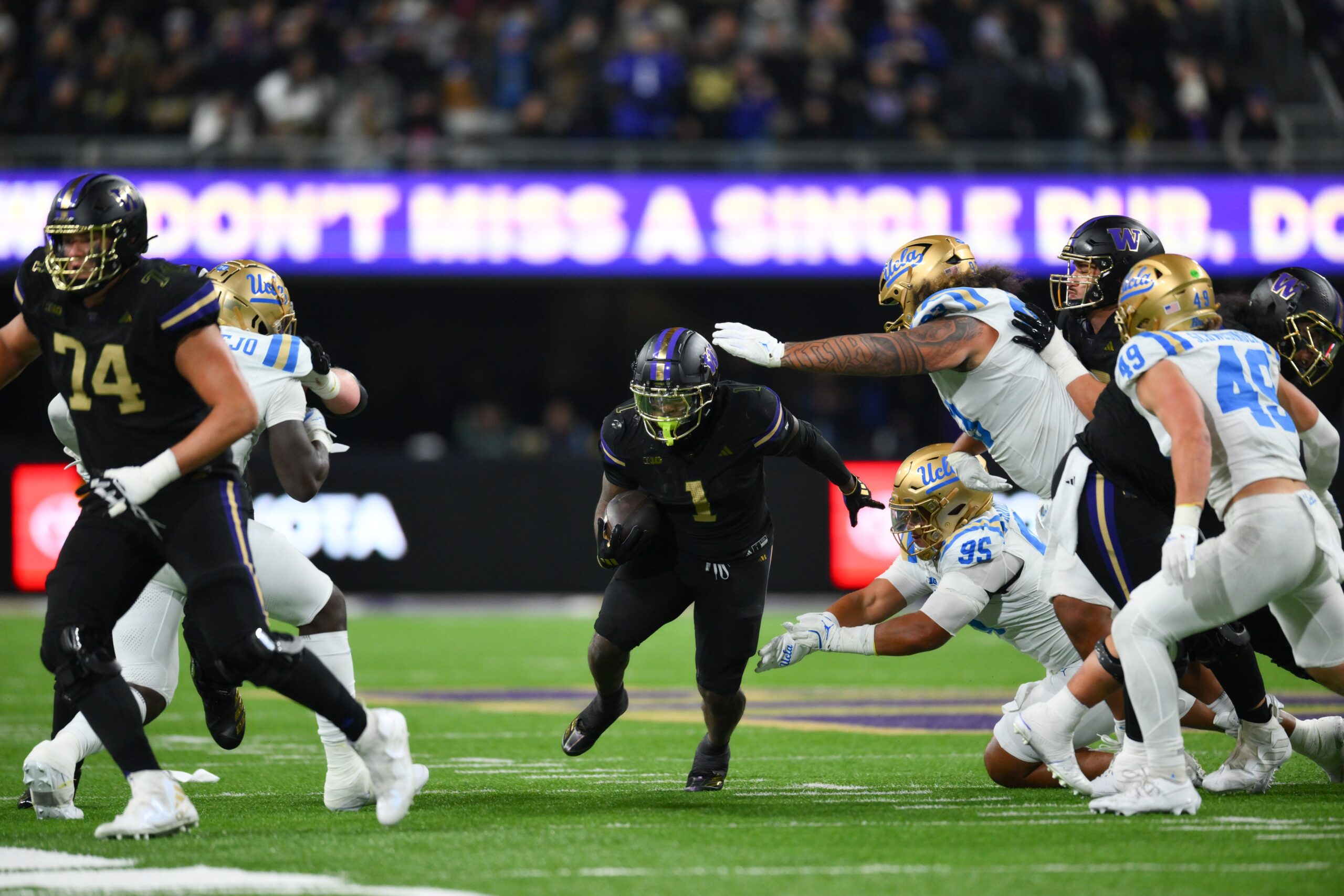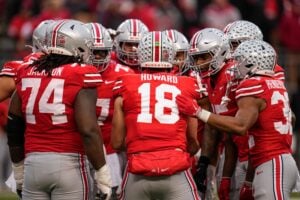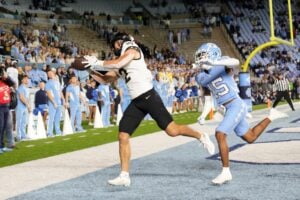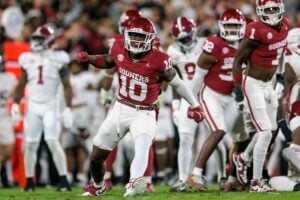Oregon is on the verge of completing an undefeated regular season for the first time since its 2010 season and the second time ever. But one of college football’s most underrated rivalries stands in the way. Washington enters Autzen Stadium on Saturday night for the regular season finale against Oregon looking to spoil that perfect season.
Washington has had its speakers blaring this week during practice to replicate the noise that’s expected inside Oregon’s home stadium on Saturday. “I expect it to be really loud. I expect it to be certainly a challenge for communication,” Jedd Fisch said on Monday. The Huskies have improved in their pre-snap discipline in their last two road games with just two false starts total. That’s an improvement from eight false start penalties in its prior three other non-home games. That trend will need to continue on Saturday, along with a focus on one specific area defensively.
First and Third Down Importance
Last week, Oregon escaped Camp Randall Stadium with a three-point victory. One of the reasons Wisconsin was able to keep the game close was its ability to limit early down success. Oregon gained an average of just 3.9 yards on first downs against the Badgers. It attempted 29 first downs in the game, gaining only 112 yards on first down. On the Ducks’ 29 first-down attempts, Wisconsin allowed only three first-down conversions. Throughout the contest, Oregon was forced to play behind the sticks. That trickled into third downs as well, where Oregon also struggled. The Ducks were just five of 15 on the evening with an average distance to go of 7.2 yards.
Take that and compare it to Oregon’s prior two victories over Maryland and Michigan. Oregon averaged 5.5 yards per first-down attempt against the Terrapins and made eight first-down conversions on 27 first-down snaps. Oregon gained 4.2 yards per first-down attempt at Michigan, but it was tremendous at reaching advantageous third-down situations. The Ducks’ average yards to go on third down at the Big House was only 4.5.
Oregon’s early down EPA per play this season has been really good, ranking 23rd nationally at +0.10. They average 6.4 yards to go on third down this season which falls within the top 15 in the country. In the Big Ten this season, no team has limited Oregon on first down as much as Wisconsin did last week. Similarly, no team has forced a longer average third-down distance on the Ducks than the Badgers did. There’s a reason Oregon narrowly avoided an upset.
Can Washington Replicate?
Early down Husky defense has been one of its areas of strength this season. Its EPA per play is -0.10, good for 25th best nationally. Against UCLA last Friday night, Washington limited the Bruins to just 3.7 yards gained per first-down attempt. The Huskies limited Michigan to just 3.5 yards per first-down attempt earlier this season. The purple and gold won both of those games by two scores.
Two weeks ago, Russell Davis II earned Big Ten co-defensive Player of the Week honors following his three-sack performance. The defense produced six total sacks and nine tackles for loss against the Bruins. UCLA’s offensive struggles began with the Husky defensive front forcing negative plays and keeping the Bruins behind the sticks.
The path on Saturday is going to be significantly more difficult, as the Ducks’ offensive line has allowed just 60 total pressures on 410 pass snaps this season. The group has given up just 12 sacks on the season, second-fewest in the Big Ten. But Wisconsin was able to find a way to get in the backfield against Oregon. It tallied two sacks and five tackles for loss that day. On the season Wisconsin has an early down EPA per play of exactly zero, which is worse than Washington’s. Fisch expects the defense to be healthy on Saturday, including the return of Makell Esteen on the back end. That also includes Zach Durfee who has been battling turf toe for most of the season. The Huskies’ defensive front is one of its deepest units. Along with Davis and Durfee, Voi Tunuufi, and Sebastian Valdez among others have the opportunity to limit the Ducks.
Quarterback Situation
We won’t know who will start at quarterback for Washington until kickoff at Oregon. But since the UCLA game, Fisch said that both quarterbacks have responded well to the situation. “Will’s experience showed up,” Fisch said on Monday. “He certainly was able to take a deep breath, and handle it really well this week.” Despite being replaced in the third quarter in the team’s last game, Will Rogers has maintained his poise as the veteran quarterback on this roster. In a raucous environment where communication is expected to be difficult, Rogers is well-suited to make his 52nd start.
But on the same token, Demond Williams Jr. had a quality week of practice as well. “Demond’s energy and confidence showed up,” Fisch said. “His ability to jump right in and feel really good about leading the group whenever it was his turn. He did a really nice job there.” Fisch made it clear that both quarterbacks rotated through both groups of offensive linemen and skill positions. Both quarterbacks are expected to play this week, as they have all season. But Williams’ ability to go off script against a quality Oregon defense certainly makes him a good fit to earn his first career start.
Predicting Oregon vs. Washington
The national prognosticators don’t expect this game to be close. Oregon is the lone unbeaten team remaining in college football. The Ducks sit atop the College Football Playoff Rankings for the fourth week in a row. If Washington wants to make this closer than many expect, it begins with its defensive front generating early down problems for the Ducks. When playing behind the sticks, Oregon has not been its usual, high-powered self. Wisconsin put that on tape last week, and Washington has the depth up front to do something similar.
Oregon – 38
Washington – 17
